"Corruption" is defined by Transparency International (TI) as "the abuse of entrusted power for private gain." Each year since 1995, TI has published a Corruption Perceptions Index that scores the world's nations out of 100 for their public sector honesty and the just-released 2016 report paints the same bleak picture we've been seeing now for two decades ... except it's getting worse.
According to the data, despite the illusion of elected government in half the world's countries, democracy is losing.
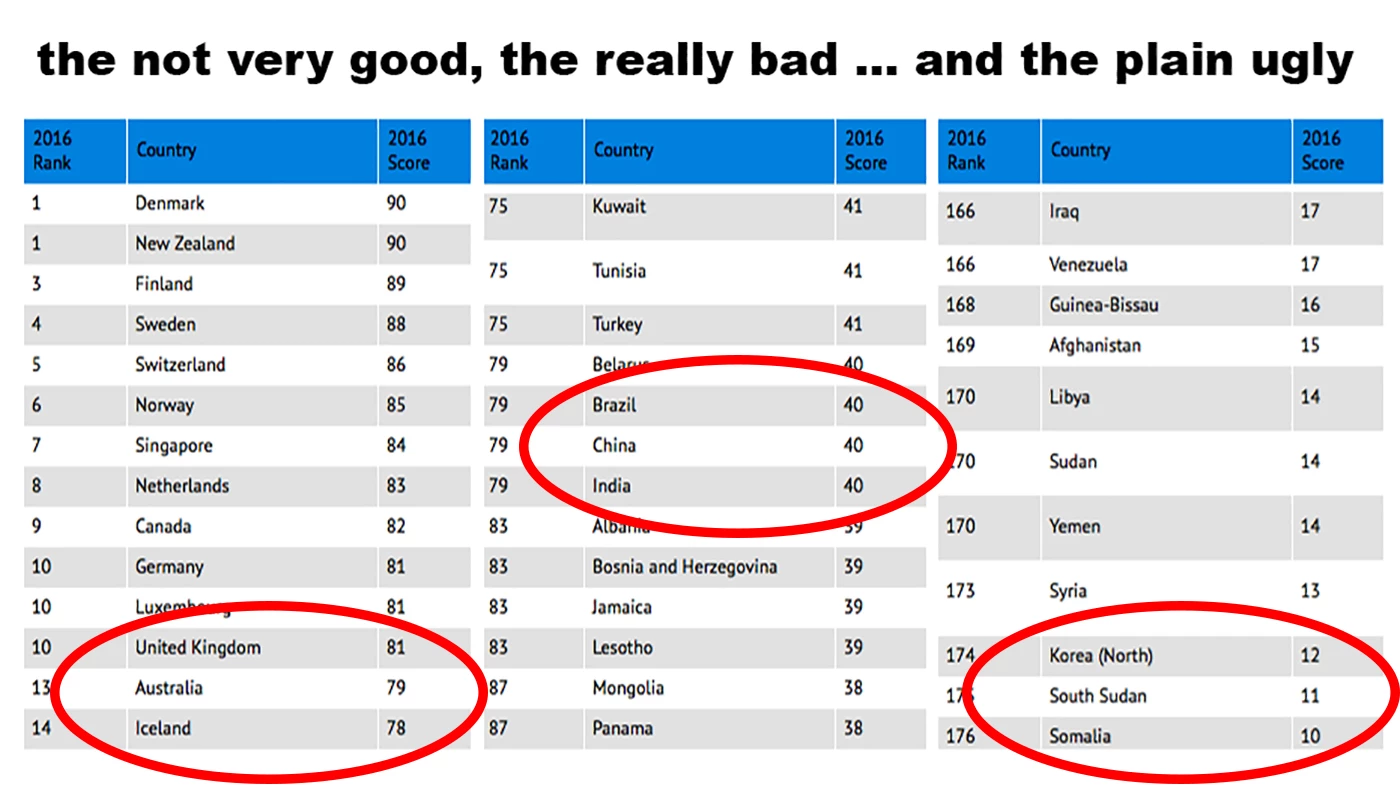
Only two countries scored 90 out of 100 this year, and just 54 of the 176 countries (30%) assessed in the report scored better than 50. Fifty percent might have constituted a pass in a High School arithmetic test, but for an elected government to be so inept at carrying out the will of the electorate, it is a clear betrayal of the people. The average country score this year is a paltry 43, indicating endemic corruption in a country's public sector is the norm.
Even more damning is that more countries declined than improved in this year's results, highlighting the urgent need for committed action to thwart corruption.
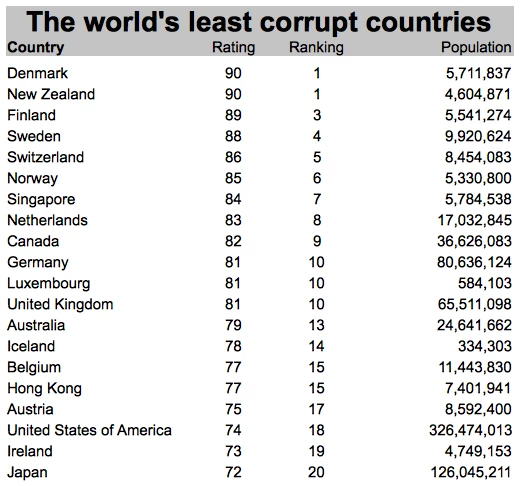
Our analysis of TI's data shows 85 percent of human beings are governed by regimes that score 50 or less, indicating that the integrity of people in authority across the globe remains sadly lacking.
Those with less power are particularly disadvantaged in corrupt systems, which typically reinforce gender discrimination. Corruption also compounds political exclusion: if votes can be bought, there is little incentive to change the system that sustains poverty for the masses and enriches the kleptocrats.
The latest update of the Economist Intelligence Unit's Democracy Index, released on the same day as the Transparency International report, reflects an almost identical perspective. The EIU Democracy Index measures the state of democracy in 167 countries and the average global score fell from 5.55 out of 10 in 2015 to 5.52 in 2016, with 72 countries recording a lower score versus 38 which showed an improvement. You can register for free and download the EIU report here.
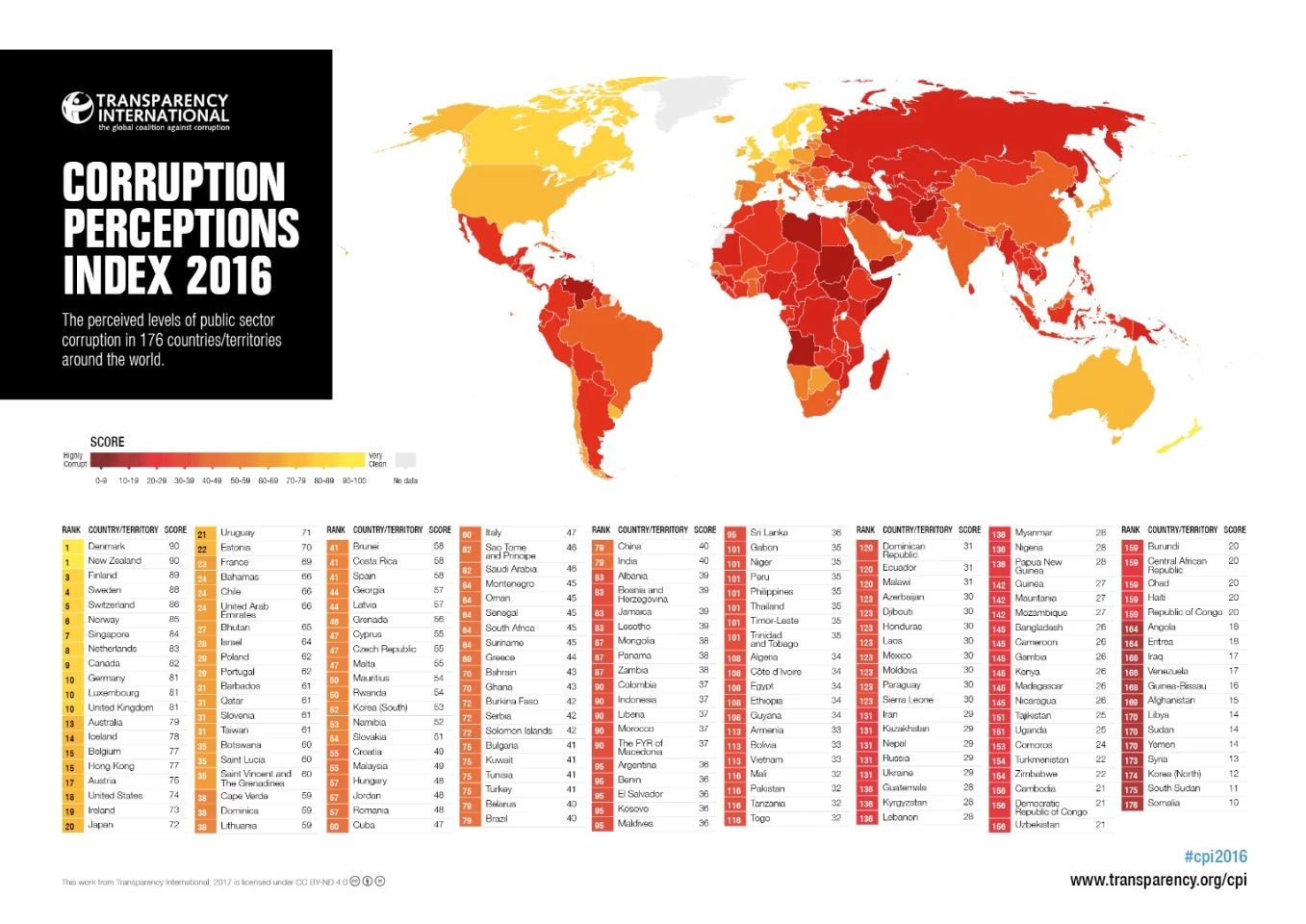
How accurate is the data?
For those who have not encountered the Corruption Perceptions Index (CPI) report previously, the 2016 CPI draws on 13 data sources gathered in the prior 24 months. It includes only sources that provide a score for a set of countries and measures perceptions of corruption in the public sector using published methodology.
The CPI is not a verdict on the levels of corruption of societies. It is an assessment of administrative and political corruption only. Citizens of those countries that score at the lower end of the CPI have shown the same concern about and condemnation of corruption as the public in countries that perform strongly.
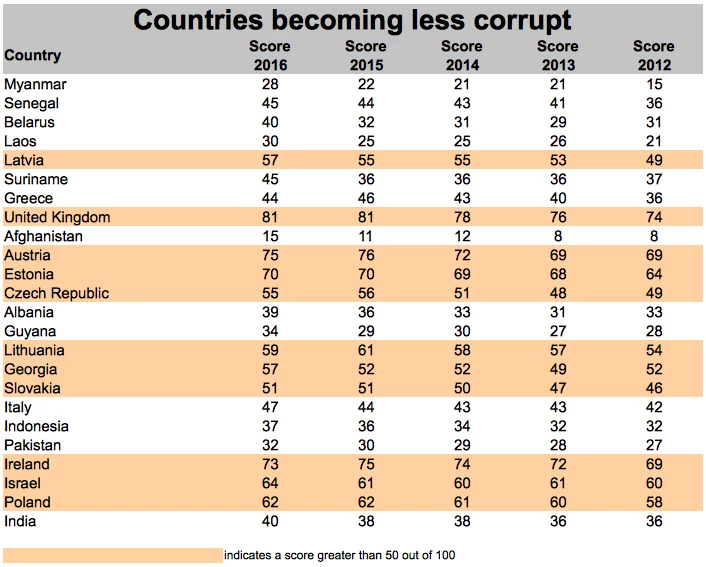
The report is based on "perceptions," but it is far more accurate and scientific than that vague term would normally suggest. Corruption is illegal and is hence difficult to assess on the basis of hard empirical data. The methodology used in compiling comparable country data for the report involves capturing perceptions of those in a position to offer expert assessments of public sector corruption in a given country.
Beyond the top ten, the ratings quickly diminish. Just 54 of the 176 countries assessed in the 2016 CPI scored better than 50. One of the common mistakes people make in reading this report is in taking more notice of a country's ranking than its actual score. It is a country's score which most accurately indicates its level of public sector corruption, while rank only indicates a country's position relative to other countries in the index. As most countries' public sectors appear to be rotten, the rankings alone make many countries (the United States, United Kingdom and Australia in particular), look far more honest and transparent than they actually are.
Indeed, as the report is synthesized from data from 13 different surveys that look at factors such as enforcement of anti-corruption laws, access to information and conflicts of interest by officialdom, not all of the world's countries are listed in the report – there is not enough data available to reliably assess them. There are more than 200 sovereign nations in the world, and the 2016 CPI only ranks 176 of them. Hence a country's rank can change as new countries enter the index or others drop out.
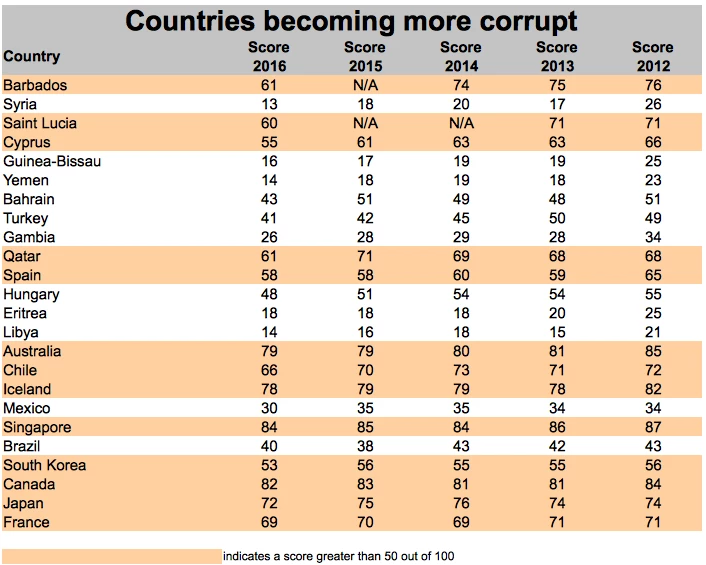
Corruption hurts everyone
Transparency International has done a great job of creating information graphics which can be easily understood, but we've gone a bit further. The tables in this analysis were created by New Atlas using the data from Transparency International.
It's also interesting to look at the rankings of the world's most populous countries which with few exceptions, have public sectors that would appear to serve themselves rather than the people they supposedly represent.
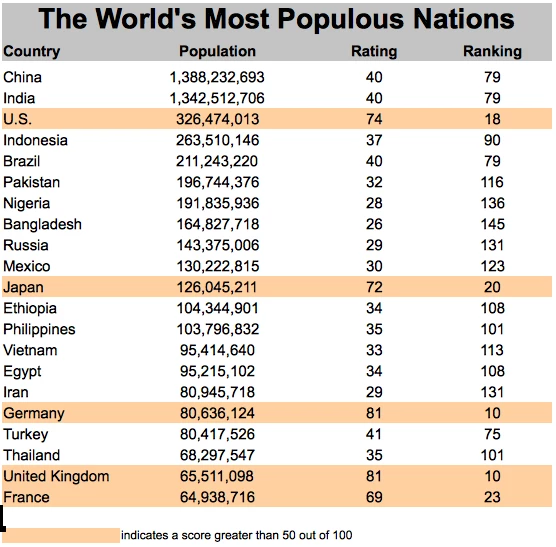
Corruption is destructive to civilized society and has dire global consequences. It traps billions of human beings in poverty and breeds social, economic and political unrest.
Corruption is both a cause of poverty, and a barrier to overcoming it. It is one of the most serious obstacles to reducing poverty. Corruption denies poor people the basic means of survival, forcing them to spend more of their income on bribes.
Human rights are denied where corruption is rife, because a fair trial comes with a hefty price tag.Corruption undermines democracy and the rule of law. Corruption distorts national and international trade. Corruption jeopardizes sound governance and ethics in the private sector.
What can we do about it?
Four out of every five human beings still live under corrupt governance. How do we do our part in making the world a fairer more prosperous place for all? The short answer is, join the discussion.
You can also download the 2016 information graphics, press releases in the most common languages, and a range of other resources here and find more information on how you can assist the anti-corruption movement. You can also follow Transparency International on Facebook, Twitter, Youtube, Instagram, Google+ and Linkedin.
Business leaders can also play a part in denouncing corruption and prohibit against it. Commercial pressures are the most likely measures to achieve any lasting justice, and companies can adopt anti-corruption policies in line with the United Nations Convention and put in place the necessary checks to strengthen integrity and transparency.
Source: Transparency International





